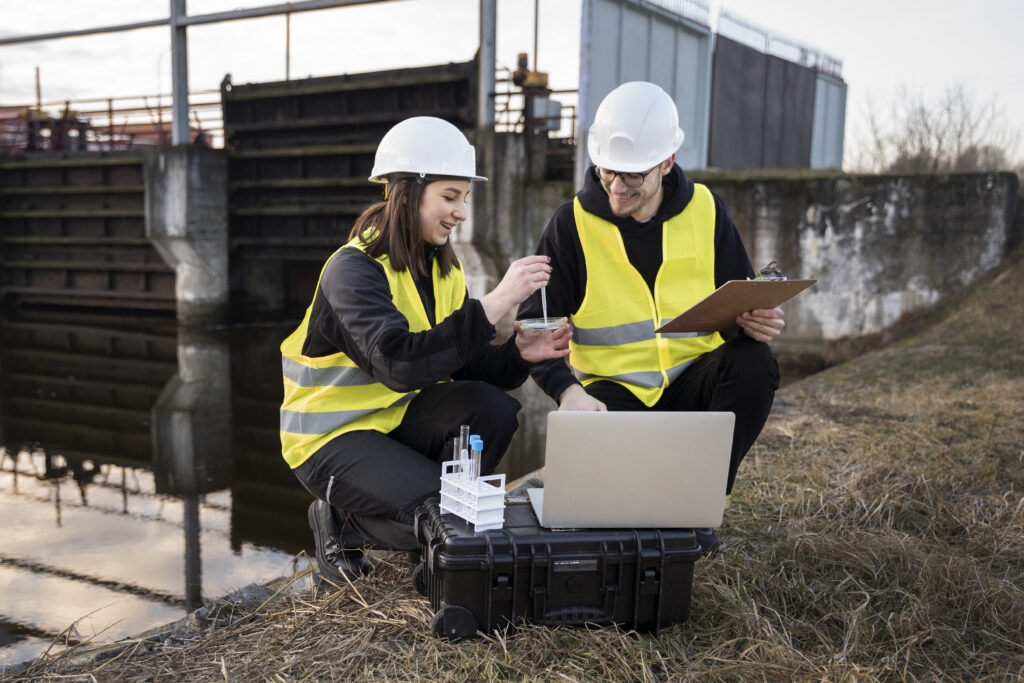
In the realm of offshore civil engineering, sustainability isn’t merely a buzzword but a crucial aspect that shapes project planning, execution, and long-term viability. As the global focus intensifies on environmental conservation and responsible resource management, the role of quantity surveying emerges as a linchpin in achieving sustainable outcomes in offshore projects.
Understanding Quantity Surveying
Quantity surveying is a discipline within construction management that focuses on managing and controlling costs within construction projects. Traditionally, its primary objective has been to ensure that projects are completed within budget while meeting quality standards. However, in recent years, the scope of quantity surveying has evolved to encompass broader considerations, including sustainability.
Optimizing Resources
One of the fundamental ways quantity surveying contributes to offshore project sustainability is through the optimization of resources. By meticulously assessing the quantities of materials required for various project components, quantity surveyors can identify opportunities for resource efficiency. This involves not only minimizing waste but also selecting materials and construction methods that have lower environmental footprints.
For example, in the construction of offshore structures such as platforms or wind farms, quantity surveyors play a pivotal role in selecting materials that can withstand harsh marine environments while also being environmentally friendly. By evaluating the life cycle costs of different materials and considering factors such as recyclability and durability, they can make informed decisions that promote sustainability.
Cost-Effective Sustainability
Contrary to popular belief, sustainability and cost-effectiveness are not mutually exclusive. In fact, quantity surveying facilitates the integration of sustainable practices into offshore projects in a financially prudent manner. Through rigorous cost-benefit analysis and value engineering, quantity surveyors identify sustainable solutions that not only reduce environmental impact but also generate long-term cost savings.
For instance, incorporating renewable energy sources such as wind or solar power into offshore platforms requires significant upfront investment. However, quantity surveyors can assess the long-term financial implications, including operational savings and potential revenue from selling excess energy back to the grid. By quantifying these benefits, they enable project stakeholders to make informed decisions that prioritize sustainability without compromising financial viability.
Mitigating Environmental Risks
Offshore projects inherently pose environmental risks, ranging from habitat disturbance to pollution. Quantity surveying plays a crucial role in mitigating these risks by ensuring compliance with regulatory requirements and implementing measures to minimize environmental impact. This includes conducting environmental impact assessments, monitoring construction activities, and implementing best practices for waste management and pollution prevention.
Moreover, quantity surveyors contribute to the development of sustainable procurement strategies, which prioritize suppliers and contractors with strong environmental credentials. By promoting transparency and accountability throughout the supply chain, they help minimize the ecological footprint of offshore projects and foster a culture of environmental stewardship within the industry.
Long-Term Sustainability
Sustainability in offshore projects extends beyond the construction phase and encompasses the entire lifecycle of the asset. Quantity surveyors contribute to long-term sustainability by factoring in lifecycle costs and asset management considerations from the outset. This involves forecasting maintenance and operational expenses, evaluating potential risks and liabilities, and implementing strategies to prolong the lifespan of offshore structures.
Furthermore, quantity surveyors facilitate the implementation of innovative technologies and practices that enhance the resilience and adaptability of offshore assets in the face of climate change and other external pressures. Whether it’s integrating smart monitoring systems to optimize energy usage or incorporating modular design principles to facilitate future upgrades, their holistic approach to project management ensures that offshore projects remain sustainable for generations to come.
Conclusion
In conclusion, quantity surveying plays a vital role in promoting sustainability in offshore projects by optimizing resources, integrating cost-effective solutions, mitigating environmental risks, and ensuring long-term viability. As the global demand for offshore energy and infrastructure continues to grow, the principles of sustainable quantity surveying will be instrumental in shaping a more resilient and environmentally conscious future for the offshore industry.



